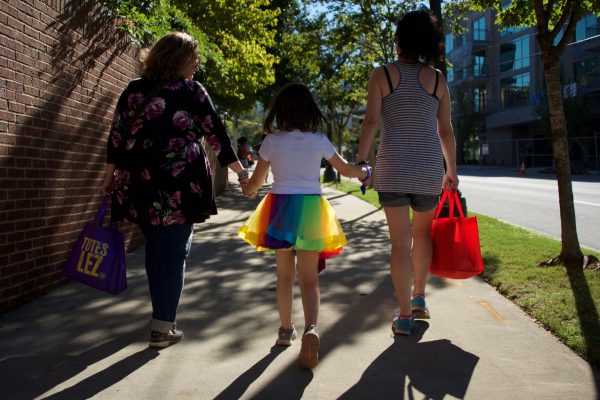
While support for gay marriage has grown steadily over the past 15 years, 31% of adult Americans still oppose it. Opponents of same-sex marriage argue that it is harmful to children, and they some have cited social science studies to support this claim. This has been the subject of much controversy, with the American Sociological Association (ASA) filing an amicus curiae brief with the Supreme Court in 2015 to weigh in on the issue. Yet new research by Deni Mazrekaj, Kristof De Witte, and Sofie Cabus challenges these claims. Their study is the first large-scale nationally representative study to examine the school performance of children raised by same-sex parents from birth.
Mazrekaj and coauthors use government administrative data from the Netherlands, which was the first country to legalize same-sex marriage in 2001. The researchers followed children born between 1998 and 2007, tracking their school performance until 2019. This differs from previous studies with smaller sample sizes or those that have relied on U.S. Census data. Previous studies included children born to different-sex parents, who then divorced before entering into same-sex unions. Parental separation is known to have negative impacts on children’s wellbeing, so this method of counting same-sex couples likely skewed earlier results. The unique contribution of this study is the ability to directly compare children raised by same-sex parents from birth with those of different-sex parents.
The authors find that children raised by same-sex parents from birth performed significantly better than their peers on standardized tests and were nearly 7% more likely to graduate from high school. The same-sex parents in this study tended to have a higher socioeconomic status, which is shown to have positive outcomes on children’s school performance. This makes sense given the high investment of time and resources required for same-sex couples to have children. Kids of same-sex couples still slightly outperformed their peers, even when the data were adjusted to control for socioeconomic factors.This study directly challenges the claim that children of same-sex couples fare worse than their peers with different-sex parents. It shows that children’s wellbeing does not depend on the gender or sexual orientation of their parents, making it that much harder to argue against equal access to marriage and parenthood.

Comments